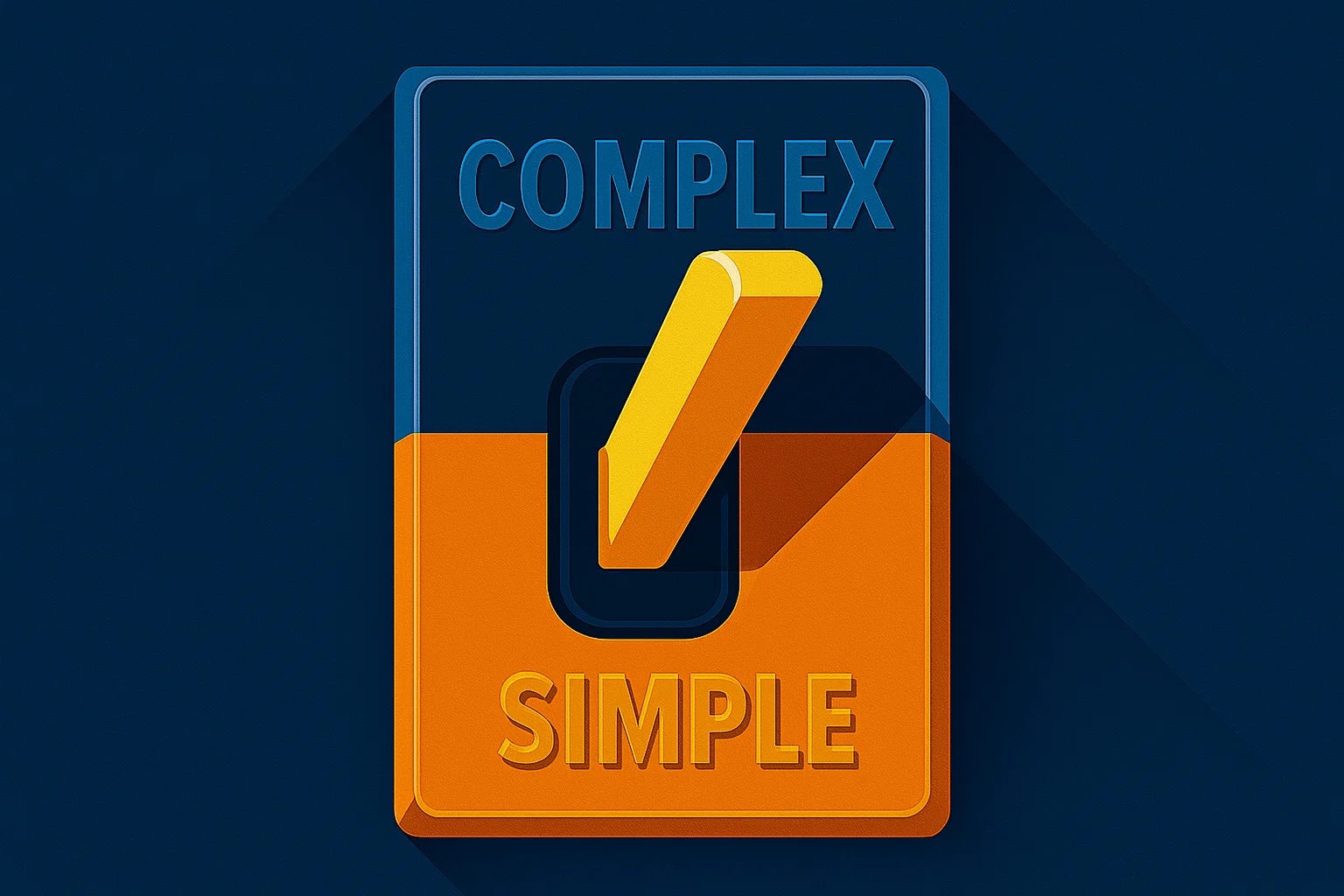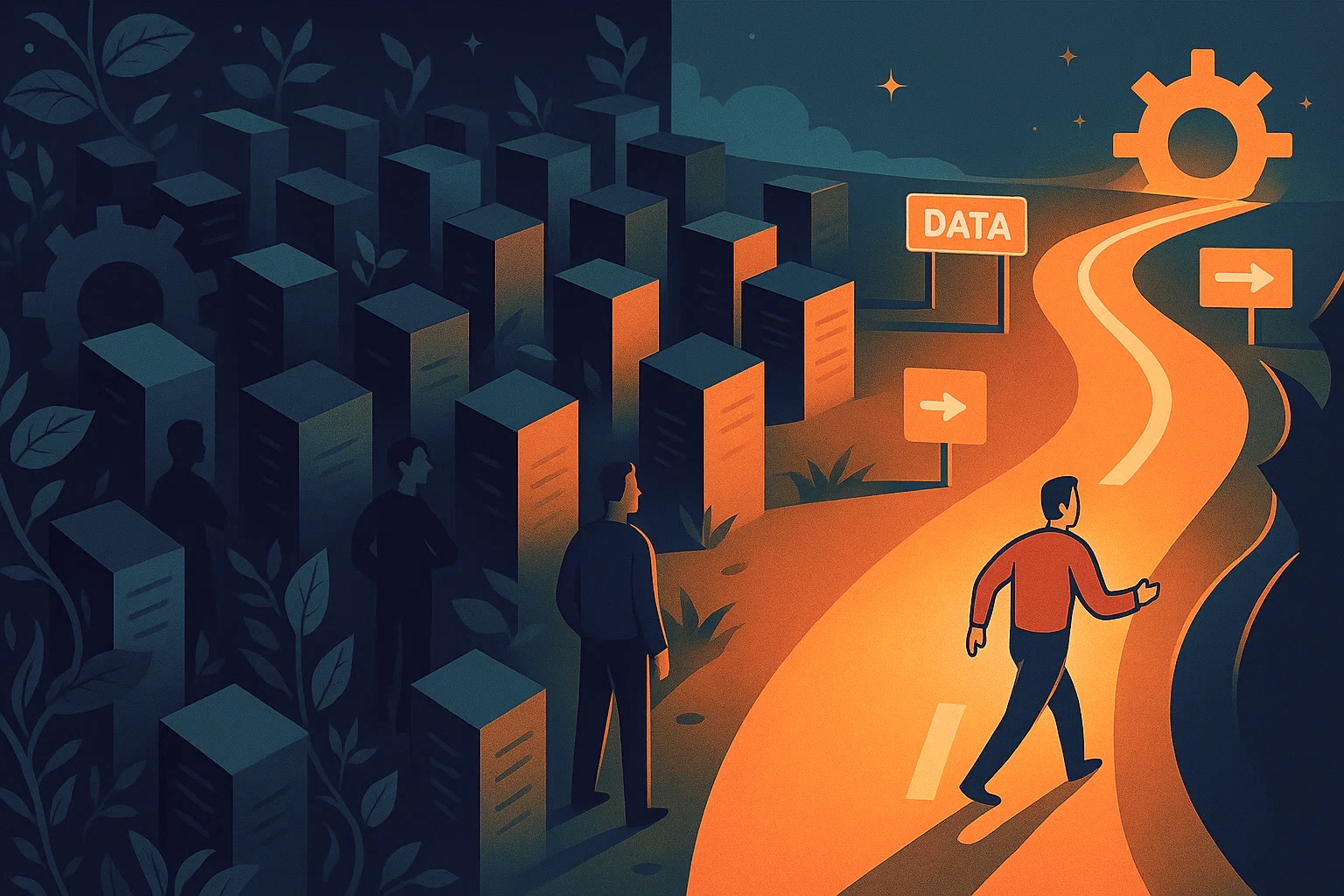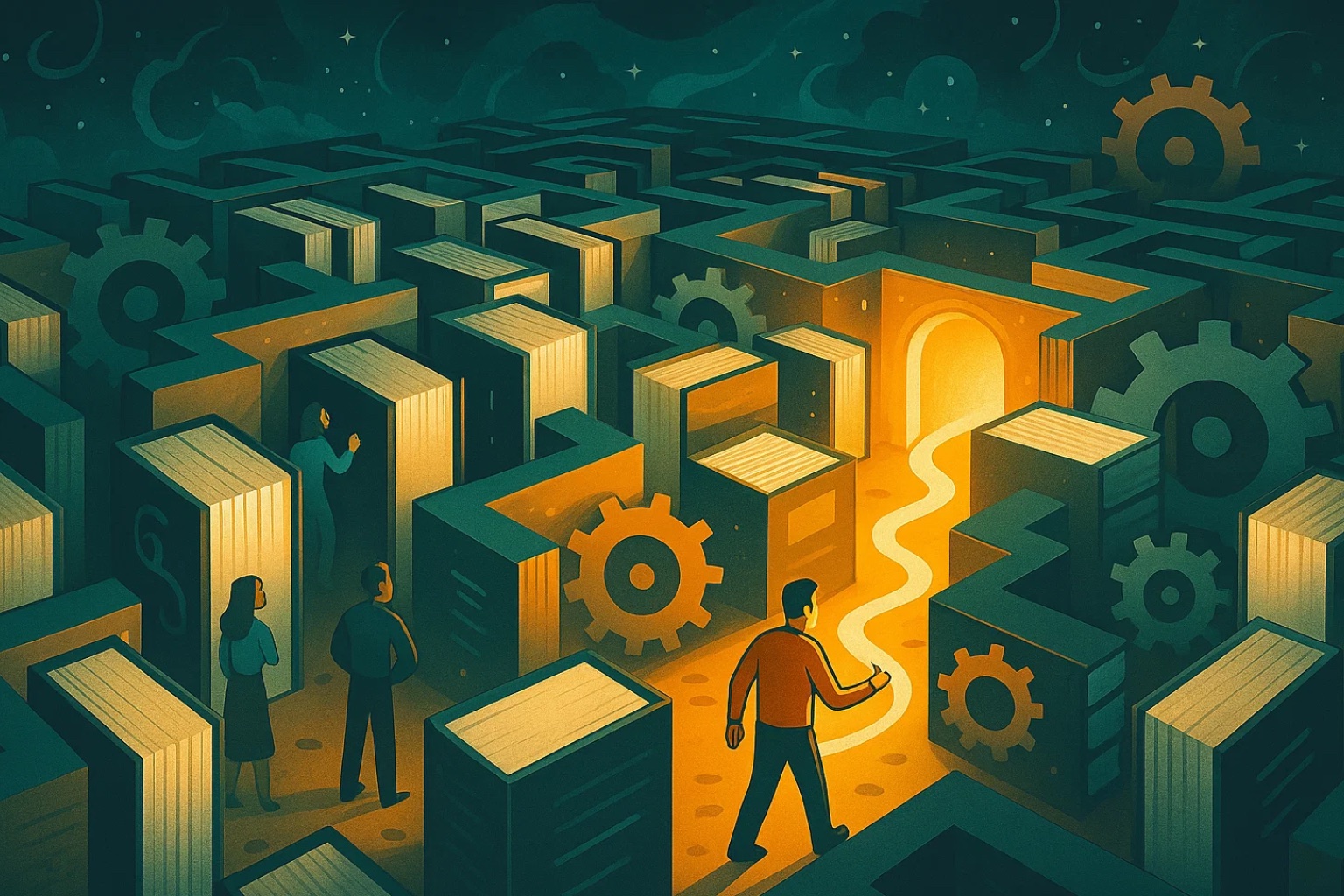©2026 Linkando GmbH

B2B Sales 2025:
Five predictions for the next year
As always, the internet is full of predictions at the end of the year. We have read through the reports and summarized the most important trends in B2B sales for you here - with specific examples.
1 AI puts the focus on human interactions
When it comes to artificial intelligence ("AI"), most analysts agree that AI will not replace human salespeople, but will provide them with assistance.
Human interaction is therefore not becoming less important as a result of AI; on the contrary, people are becoming more central.
In this context, Gartner speaks of "AI-based guided selling". Companies should identify the least efficient parts of their sales cycle and use AI there in a targeted manner to increase efficiency.
For example, processes that require a lot of manual research or complex knowledge or are based on extensive workflows can be optimized with AI-supported digital guidelines.
2. hybrid workflows combine man and machine
The management consultancy McKinsey & Company writes that "the future of B2B sales is hybrid". Next year, we will increasingly see combinations of man and machine to make B2B sales processes more efficient.
One example of a hybrid workflow is so-called webplays. Here, a website visitor uses an automated digital guide to find their way around a website or web portal on their own. A human only steps in when problems arise.
The difference to fully automated self-service processes such as chatbots is that a person can take over the webplay immediately - without a media break. This is because webplays transfer all data directly to the sales tools of the sales employees so that they can pick up the thread straight away.
3 AI pioneers could run out of steam in 2025
A forecast by Forrester is also interesting when it comes to AI: according to this, AI will continue to lead to productivity increases in 2025. However, the return on investment (ROI) often only materializes in the long term.
According to the Forrester Q2 AI Pulse Survey in 2024, 49% of respondents expect an ROI within one to three years; 44% expect three to five years.
Due to the long-term horizon, Forrester assumes that some organizations could lose patience and reduce their AI investments in 2025. However, this could lead to long-term competitive disadvantages, according to Forrester.
4. data-driven enterprise of 2025
The term "Data-driven Enterprise of 2025" also comes from McKinsey. According to this, data will become increasingly important in B2B sales.
In this context, Gartner speaks of the transition from experience- and intiution-based selling to data-based selling. 60% of all B2B sales organizations will follow this path in 2025.
But what exactly does that mean?
More and more buyers are no longer interacting with human sales staff. As a result, data-based processes are becoming more important:
- Which digital interactions provide the best sales opportunities?
- How can digital processes be optimized?
- When is buyer attention at its highest?
- Which qualification criteria are most effective?
Such questions can and must increasingly be answered with data. This means that organizations rely less on subjective perceptions and instead make decisions based on objective criteria.
5. skills shortage accelerates the trend towards virtual sales
According to Gartner, the battle for sales talent will intensify further in 2025, not least due to demographic trends and the fact that experienced sales experts are increasingly retiring.
Technologization can help here in two ways:
- On the one hand, young talents are demanding more flexibility, for example through home office arrangements. For young parents in particular, this also improves the work-life balance.
- On the other hand, virtual sales can also offer experienced talents an opportunity to stay in the job for longer, even if their own mobility decreases.
Now it's your turn: What do you think are the most important B2B sales trends for 2025? Write to us at info@linkando.com.




